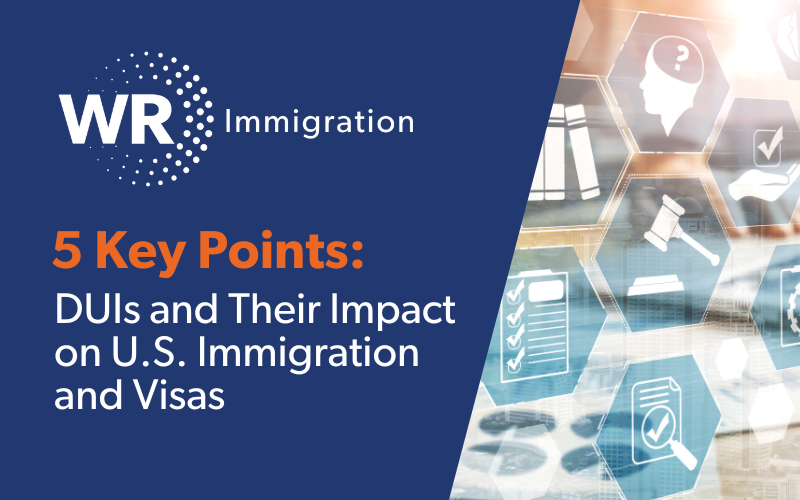1. DUIs and Immigration Admissibility:
In U.S. immigration, DUI (Driving Under the Influence) and DWI (Driving While Intoxicated) are crucial factors. These offenses, viewed as potential health concerns, can greatly affect your immigration status. It’s important to note that even DUIs reduced to charges like reckless driving are closely examined, especially if they’re recent (within the last five years).
2. DOS’ Authority on Visa Revocation for DUI:
The Department of State (DOS) has the power to revoke visas based on DUI/DWI offenses. This applies particularly to cases where a recent DUI arrest or conviction (within the past five years) is discovered. This policy, however, is generally not applicable if the arrest has been previously addressed in a prior visa application (and medical exam).
3. Importance of Form I-693 and Honest Disclosure:
The Report of Medical Examination and Vaccination Record, or Form I-693, is essential in the U.S. immigration process. Applicants must fully disclose all DUI/DWI incidents, as even cases up to ten years old are evaluated during the medical examination.
4. Re-Examination for Inconsistent DUI/DWI Reports:
If there are discrepancies in reporting DUI/DWI incidents, immigration procedures may require a re-examination. This is to ensure accurate evaluation of any alcohol-related harmful behavior, reflecting a growing trend in stringent assessments in immigration cases.
5. The Weight of DUI/DWI on Immigration Decisions:
The nature and frequency of DUI/DWI offenses are significant in determining immigration eligibility. Recent offenses (within the past five years) or multiple offenses (two or more in the past ten years) can lead to a Class A medical condition classification, impacting immigration status.
These insights are critical for understanding how DUI/DWI offenses affect U.S. immigration and visa processes. For those navigating these processes with a DUI/DWI history, being informed about these key aspects is essential for a successful application. For more information, contact us here!


